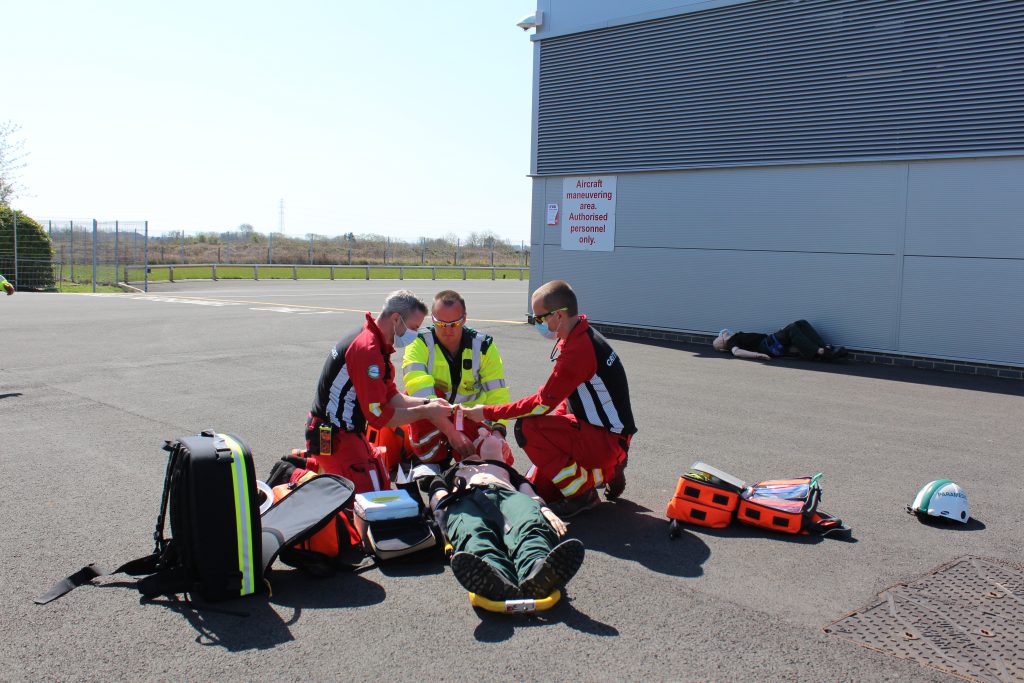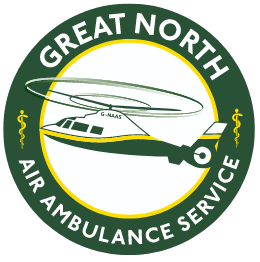Over the past few years our critical care team have committed to taking part in daily training when on shift to ensure they deliver the best care possible to their patients.
This involves creating realistic scenarios that the team may come across when they are activated to an incident, so they’ll know what to do if they end up facing a similar situation in real life.
Here Jamie Walsh, assistant director – training, explains the training in more detail:
“We do a simulation on base every day and these focus on our standard operating procedures.
It’s a way of trying to improve our knowledge of our standard operating procedures and keeping them at the forefront of our minds.
An example of a scenario we have done was someone who had fallen off a ladder and sustained a significant head, chest injury and spinal injury. It is very easy in patients with multiple injuries to lose situational awareness and become task focused on a procedure or a specific injury, we train in a way that is designed to test us not only on our knowledge, but the non-technical skills and human factors of pre-hospital emergency medicine.

The culture we have at GNAAS towards training and learning is fantastic and something all healthcare providers should try to develop, which is the ability to put yourself out there and share your mistakes or learning with each other to help the service learn and move forward.
I’ve got a lot of respect for everyone I work with and it’s very easy to always try and be the person that you want them to see, but we’re all human, we all make mistakes and we all learn from each other’s mistakes.
So doing this in front of each other every day has dramatically changed our culture of what’s acceptable and how we’re perceived by each other.
We have a bank of about 160 simulations written up and every morning we have a standard operating procedure of the day.
We regularly write new simulations for that standard operating procedure so you don’t really know what you’re going to get.
These training simulations are really important, not only for ensuring our team keep on top of their knowledge base and practice, but it also helps to put us in really tough situations where we have to make difficult decisions to optimise our patient care.
I really believe the culture towards learning and training that has been developed at GNAAS has developed us all as clinicians and helped save countless lives.”
Can you help Fund Our Fleet?
Donate today to help secure the future of our helicopters
Support the appeal


